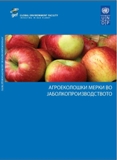Tourism Development
Landscapes and Tradition
In an
area like Prespa, endowed with a variety of unique values – natural and
cultural – tourism is often seen as the universal solution for economic
development. However, uncontrolled tourism may aggravate stress on
ecosystems and unequal distribution of income opportunities, so a
planned basin-wide approach is required. This refers both to many
sectors supporting tourism activities, like roads, water supply and
sewage, as well as coordinated, nature-based planning and
marketing.
Facts and figures
Visitors come to Prespa at all seasons. The main tourist period lasts from June to September with a peak in July and August, while in Greece winter season is also very busy. Domestic guests dominate the Prespa tourism market in all three countries, with less than five percent of foreign tourists.
The sheer beauty of the Prespa landscapes is enough to draw visitors. In addition to that, versatile cultural and traditional elements, valuable ecological sites, good food, picturesque villages and historical layers of Byzantine and Ottoman monuments spread across the basin. No wonder then that the promotion of tourism seems to be essential for the economic development of the area and the preservation of its historical, cultural and ecological identity
Local experts believe the current capacity for tourists to be lowest in Albania (75 beds), Greece (300 beds), and The Former Yugoslav Republic of Macedonia (7,200 beds). However, bed capacity does not reflect the health of the market. Tourism is actually on the rise in both Greece and Albania, while The Former Yugoslav Republic of Macedonia has lost 50% of its clients (also due to external causes).
Tourism is expected to increase over the next 20 years, calling for the development of communal and traffic infrastructure, and regional planning to encourage increased tourism. This, in turn, requires the improvement of the wastewater and solid waste treatment which currently do not suffice even for the needs of the inhabitants.
Services offered in the Greek Prespa mainly relate to recreation and tourism primarily in the form of hotels and taverns. Estimates from 2000 suggest an annual income of just under two million US dollars for accommodation and meals. A steady yearly increase in the tourist flow is noted during the last few years, while, in parallel, the first signs of the inefficiency of the existing infrastructure have appeared.
Tourism has been given a prominent role in Albania’s development strategy, and Macro Prespa is considered one of the most important areas regarding the potential for tourism. However, this potential is unexploited due to the generally unfavourable economic situation and the lack of basic tourist infrastructure. Nevertheless, certain initiatives are directed to the Micro Prespa region in Albania.
Challenges
The current state of tourist infrastructure presents an obstacle to the utilisation of the tourist potential of the region, in combination with the problems facing the other services in the area (telecommunications, drinking water etc.). The quality of the services offered calls for improvements too: boat trips, swimming, guided tours of historical monuments, insufficient number of nature observation points, small-scale conference and alike.
The lack of public investment in the conservation and restoration of tourist attractions - archaeological, historical, cultural and ecological – is aggravated by the insufficient information and promotion. The stresses on the environmental health have started to take their toll on tourism too, like the challenged appeal of the lakes as swimming resort due to eutrophication and increased pollution.
The waste disposal problem in Prespa is important but, perhaps, not critical yet. The foreseen increase of visitors and changes in consumption patterns requests for a good planning and the development of necessary infrastructure in the area to accommodate future needs.
The Way Ahead

On the other hand, sustainable tourism respects ecological limits within which human activities should remain, and recognizes the interdependence of economic and environmental systems to provide for long-term socio-economic benefits. It refers to a variety of activities supporting tourism, and entails ecotourism as an environmentally responsible travel to relatively undisturbed natural areas, in order to enjoy and appreciate nature (and any accompanying cultural features - both past and present). Ecotourism promotes conservation, has low negative visitor impact, and provides for beneficially active socio-economic involvement of local populations, according to the International Union for the Conservation of Nature.
According to the UN-World Tourism
Organization (UN-WTO), sustainable tourism should keep a balance
among the environmental, economic,
and socio-cultural aspects of tourism development in order to
guarantee long-term benefits to the recipient communities.
Visiting the Prespa Park
If you are a visitor to Prespa, follow these simple guidelines. You will prove that tourism does not mean deterioration of local characteristics and degradation of the environment, but can be a means to better protect a region and integrate tourists into the local way of life.
Get informed about what’s important in the region, and help preserve wildlife and biodiversity;
Explore the area on foot and by bicycle;
Talk to the people. Learn about their life and customs;
Support the local economy by buying local products.
Minimize the consumption of natural resources, primarily water and energy.
Protect the nature by choosing activities that do not impact on the flora, fauna and natural landscape and leave no marks or traces on the places you pass through.




